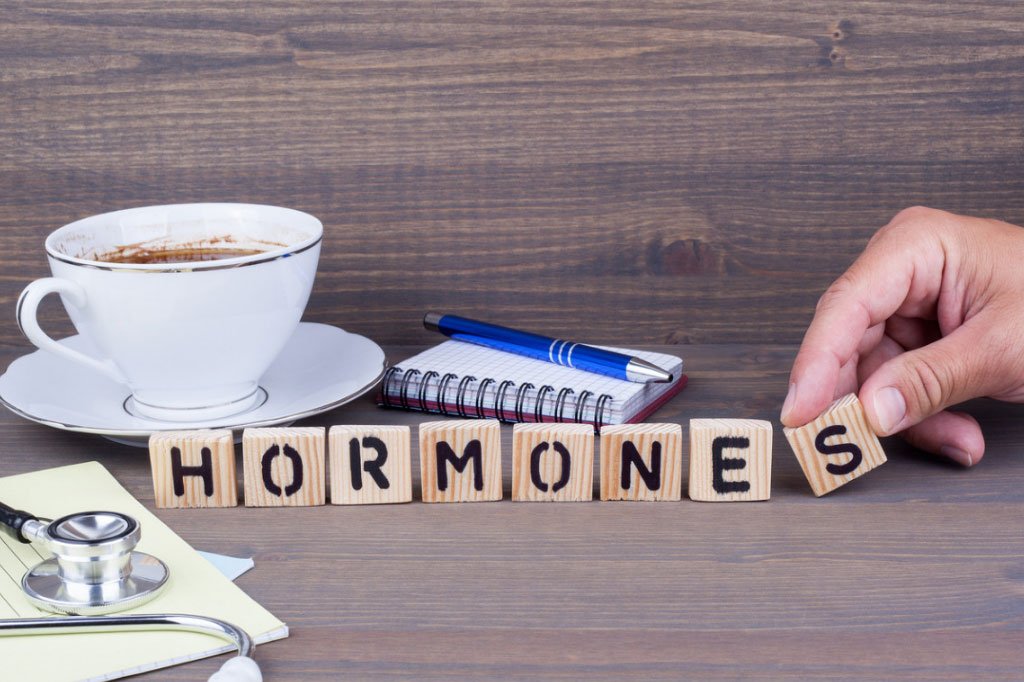Hormones 101

Hormones have a lot of control over our bodies and it’s absolutely necessary to know as much as you can about them. You might have heard about estrogen, testosterone and cortisol, but did you know that even insulin is a hormone. If you’re interested in knowing all about hormones, then this beautifully designed and information-rich infographic is for you. It comprehensively describes important hormones and the individual roles they play in our body.
There are many hormones that control our body, but there are some that are particularly important to know about. Estrogen for example, is the ‘female’ group of hormones that produced primarily in the ovaries. It helps the development of hips and breasts and regulates menstruation. Estrogen also plays an important role during pregnancy as it prepares the female body by building the uterine lining, and promoting lubrication from joints to the vagina.
Testosterone is the ‘male’ hormone, although it is also produced in females in much smaller amounts. It dictates vitality, sex drive and self-confidence. Females that have higher levels of testosterone are less likely to get pregnant, according to some studies.
Cortisol is the well-known stress hormone. It governs your immune function and can actually boost your immunity for a short period of time. But over time, your body becomes accustomed to the increased amount of cortisol in your blood and that can actually have a negative effect. Firstly, this opens the door for more inflammation and secondly, it decreases the amount of lymphocytes (white blood cells) in your body. White blood cells are your line of defense against infection. Higher levels of cortisol (caused by stress) can cause depression, which can lead to inflammation. Left untreated, depression not only severely impacts your mental health but also makes you less immune to disease and infection.
Hormones should exist in a balanced state in your body. Hormone imbalances can lead to an unstable body condition, causing chronic symptoms and disorders. In the case of excessive cortisol levels as we’ve discussed before, your body becomes much less resistant to disease and infection. This is why depression is such a big problem – people treat it as a mere mental disorder when in fact it is both the mind and body that are suffering in equal amounts.

Hormonal imbalances can also lead to other problems such as
- Hair loss
- Acne
- Depression
- Infertility
- Low libido
Seeing as how important it is to have balanced hormone levels in your body, regular checkups with a specialist are necessary. Know that there are different tests for checking hormone levels, with some being more effective than others. Make an appointment with your doctor and inform them that you’re looking to get an insight into your body’s hormone levels.
Some general guidelines to follow during the initial checkup:
- Describe your symptoms accurately. If possible, a timeline will help greatly
- If you’re depressed, mention that to the doctor as well
- Mention any current medication, vitamins or supplements you’re using
You can also ask your doctor to take a blood test, since most hormones can be detected in the blood. The blood test will check for your thyroid, estrogen, testosterone and cortisol levels.
If you’re experiencing a hormone imbalance, there are several treatments available depending on the cause.
A low dose of estrogen (estrogen therapy) might be needed if you’re experiencing uncomfortable symptoms of menopause such as hot flashes. Vaginal estrogen therapy is done by applying estrogen cream, tablet or ring. This is used to treat vaginal dryness or pain during sex. This is the preferred treatment because the estrogen is applied directly to the organ, and does not travel throughout the bloodstream.
Women experiencing hair loss, facial growth or acne can also choose to take anti-androgen medication. This medication will cause the growth of androgens, which are male sex-hormones (present both in women and men). For women with excessive facial hair, Eflornithine (Vaniqa) is a prescription cream that can help slow new hair growth. Note that it doesn’t help get rid of existing facial hair.
Men experiencing delayed puberty can opt for testosterone supplements which come in the form of injectables, patches and gels.
Hormonal birth control can be useful for women who are trying to get pregnant as it helps regulate the menstrual cycles. Premenopausal women who are experiencing a low sex drive can opt for Flibanserin (ADDYI), which is the only FDA-approved medication for this condition. Be aware, that it does come with serious side effects and you should always have a thorough conversation with the doctor to determine whether this is a necessary treatment.



I prefer to take Armor – Dedicated Pig Thyroid, for under active thyroid function. With the synthetic thyroid medication, I was loosing hair (by the fistful, gaining wait, and suffered from depression. I made the switch about six years ago, and my hair is not falling out, I have lost over 75 pounds, and I am doing so much better emotionally.
(My son is a type 1, diabetic and must use insulin. His insulin is from pigs, so I figured that I would try pig hormones too. It is a much better fit for me.)
Best wishes, Molly!
I hope essential oils help me sleep!
Interesting read.
Thank you for such a comprehensive overview! Being menopausal, I found a lot of the info helpful.